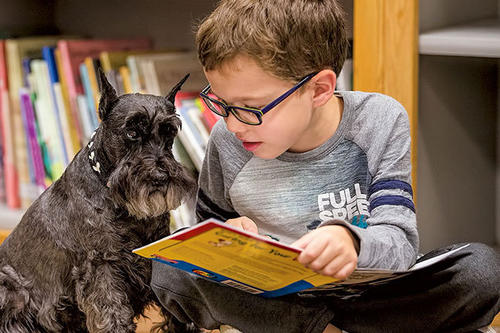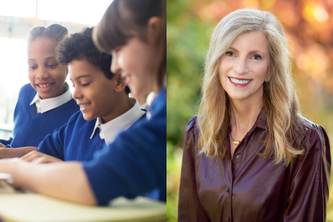
Louise Botko owns a miniature schnauzer named Fury. Every Tuesday afternoon, Fury sits patiently with second-graders at Zachary Lane Elementary School in Plymouth, MN, as they read book after book to her. They choose books they think Fury will like and point to the pictures.
"When you read to the dog, there's no judgment," says Botko. "What it does is give the students practice and confidence in their oral reading fluency. Fury listens while they read."
Botko, who graduated from the University of Minnesota in 1965, is a retired educator and one of many volunteer tutors at schools throughout the Twin Cities metro area.
"Classrooms are often crowded, and we know that there are often not enough adults to give individualized attention," says Megan Pieters, a coordinator for America Reads, a program in the U of M's Minnesota Center for Reading Research (MCRR).
MCRR is one of many U of M efforts to ensure that all Pre-K through 12th grade students, particularly those of poverty and from diverse backgrounds, reach their full potential by engaging educators and researchers to address the opportunity gaps that impede success for children and youth.
America Reads trains and employs U of M students as literacy mentors for elementary and middle school students in Minneapolis and St. Paul. Pieters worked for America Reads before graduating from the U's College of Education and Human Development in 2011. Her experience and the program's mission drew her back.
Being a mentor to a young student isn't just about schoolwork. The tutor–student relationship revolves around connections, says Pieters.
"It is so important to get all hands on deck," says professor and MCRR director Lori Helman. "We know that tutors can positively impact children's academic success, particularly when they receive training and oversight by knowledgeable personnel."
- Categories:
- Education





